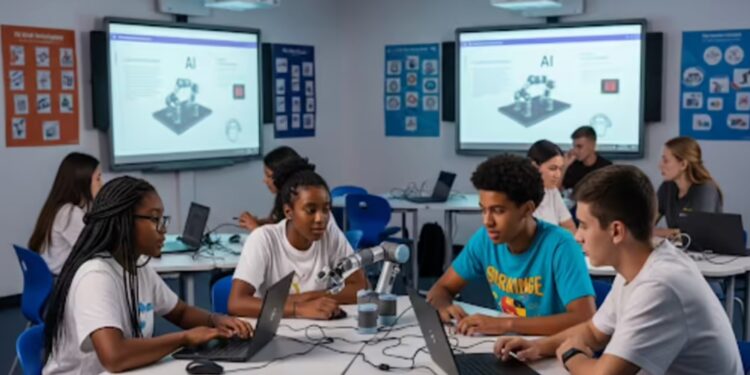In a major educational reform aligned with Saudi Vision 2030, the Kingdom has introduced a complete overhaul of its school curricula for the new academic year. The changes prioritize the development of digital and technical skills, with the introduction of new subjects like Artificial Intelligence (AI), Cybersecurity, and Tourism and Hospitality. This move aims to prepare a future-ready generation capable of driving a knowledge-based, diversified economy.
The reforms, announced by the National Curriculum Center, represent a fundamental shift away from traditional, textbook-centric learning. “The curriculum is no longer confined to textbooks,” said Abdulrahman Al-Ruwaili, CEO of the NCC, “but encompasses all student experiences.” The new subjects were developed in collaboration with relevant ministries and authorities to ensure they align directly with national strategic goals.
The new AI curriculum, developed with the Saudi Data and AI Authority (SDAIA), will introduce students to concepts from an early age, building progressively through their education. It focuses on hands-on, self-learning to equip students with the skills needed for the digital era. Similarly, the Cybersecurity elective, created with the National Cybersecurity Authority, will teach students how to protect themselves and their devices in an increasingly connected world.
Beyond technology, the introduction of a Tourism and Hospitality curriculum underscores Saudi Arabia’s commitment to developing its tourism sector as a key pillar of economic diversification. This subject will teach students principles of sustainable tourism and event management, preparing them for careers in this rapidly expanding industry. Furthermore, a Fashion, Art, and Design elective for female students aims to foster creativity and develop practical skills in a growing creative economy.
The curricular changes extend beyond classroom subjects. The new framework integrates learning into daily school life through assemblies and extracurricular activities, promoting a overall educational ecosystem. In addition to the new subjects, the Kingdom is expanding Chinese language instruction and introducing interactive English courses to enhance communication skills. A new First Aid curriculum, developed with the Saudi Red Crescent Authority, also joins the list of new subjects, ensuring students are equipped with essential life-saving skills.
The reforms are part of a broader educational transformation that includes the recent decision to return to a two-semester academic year for public schools, a move that provides greater flexibility and a better work-life balance for students and teachers. These strategic adjustments collectively position Saudi Arabia’s education system to meet the demands of the modern world and support the ambitious goals of Vision 2030.










![Online Scam Cases Continue to Rise Despite Crackdowns on Foreign Fraud Networks [Myanmar] Online Scam Cases Continue to Rise Despite Crackdowns on Foreign Fraud Networks [Myanmar]](https://sumtrix.com/wp-content/uploads/2025/06/30-12-120x86.jpg)





